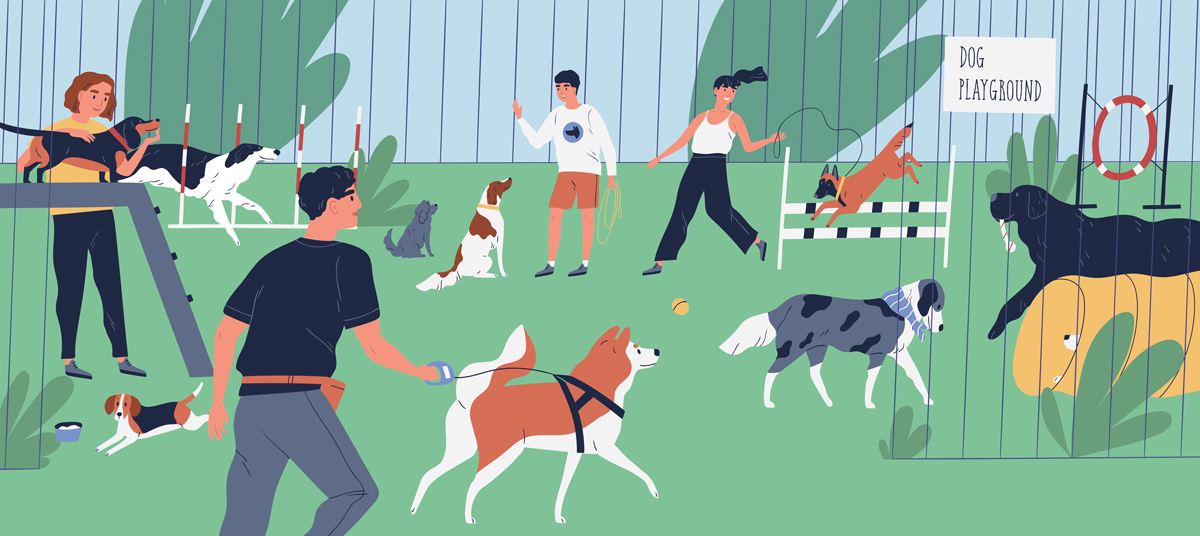Our Approach To Behavioral Training
Ongoing behavioral issues pose a significant challenge for many urban dogs and their human parents. These issues often result in the dogs being excluded from family outings, leading to extended periods of isolation, lack of exercise, and mental stimulation. Some dogs are forced to wear restraining equipment such as muzzles, gentle-leaders, and no-pull harnesses, that limit exploration and natural movement, risk injury, and diminish the joy of even a simple walk. Moreover, they frequently miss out on social interactions with other dogs and people. These restrictions, in turn, can exacerbate the initial behavioral issues, creating a vicious cycle.
To bring some clarity to our approach behavioral training, we group behavioral issues into three categories:
Note: Classifying the behaviors of complex creatures is inherently imperfect, as many of them don’t fit neatly into just one category. For instance, in dogs, aggression towards strangers can arise from acquired habits, anxiety, genetic factors, or some combination of all three.
Consider This
Rethink behavioral training
When dogs display problematic behaviors, many people ask “Why does my dog do that?”, and usually expect a simple answer that provides clarity and a relatively straightforward solution… usually involving some type of extrinsic motivation that elicits a desired behavior, in that particular moment. However, this usually fails to address the root cause of the problem.
Behaviors are snapshots of what’s going on with the dog, at that particular moment in time, with most of the underlying causes hidden from our view. Because of that, it’s not always enough to analyze a particular behavior, but rather to look for patterns.
In our opinion, a more useful question is “How did my pup become the dog who would do such a thing?”. This forces one to look at the bigger picture, and find a holistic approach to addressing the behavioral patterns that raised concerns.
Private Sessions &
Zoom Consultations
For help with specific behavioral issues, we provide in-person sessions and Zoom consultations with the goal of teaching the dog’s parent how to better understand their dog’s needs and to eliminate, minimize, or manage their unwanted behaviors.







